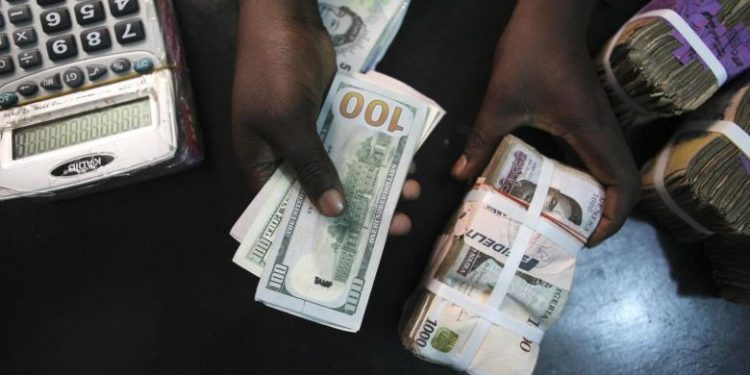Nigeria’s foreign exchange (FX) reserves witnessed a considerable decline this week, plummeting by USD502.99 million week-on-week to reach a seven-year low of USD32.11 billion as of April 18th. Concurrently, the naira halted its recent appreciation streak, experiencing a depreciation of 2.4% to NGN1,169.99 against the US dollar at the Nigerian Autonomous Foreign Exchange Market (NAFEM).
Despite the naira’s depreciation, total turnover at the FX window surged by 110.5% week-to-date to USD1.25 billion as of April 18, 2024. Trades within the range of NGN981.04 to NGN1,227.00 per USD were consummated during this period.
In the Forwards market, rates for the 1-month, 3-month, and 6-month contracts increased by 3.5%, 3.1%, and 2.5%, respectively. However, the rate for the 1-year contract decreased marginally by 0.2%.
Analysts attribute the current pressure in the FX market to foreign portfolio investors (FPIs) exiting the domestic capital market, primarily due to external shocks such as uncertainties surrounding the escalation of the war in the Middle East. The prolonged conflict in the Middle East, coupled with the US Federal Reserve’s decision to maintain higher interest rates, poses significant risks to the sustenance of FPI inflows into Nigeria.
Given these uncertainties, the naira is expected to face pressure in the short term, as FPI inflows have been a crucial source of liquidity in the FX market. Additionally, FX inflows from external trade remain constrained, potentially limiting the Central Bank of Nigeria (CBN) from intervening sufficiently in the market to stabilize the currency.















